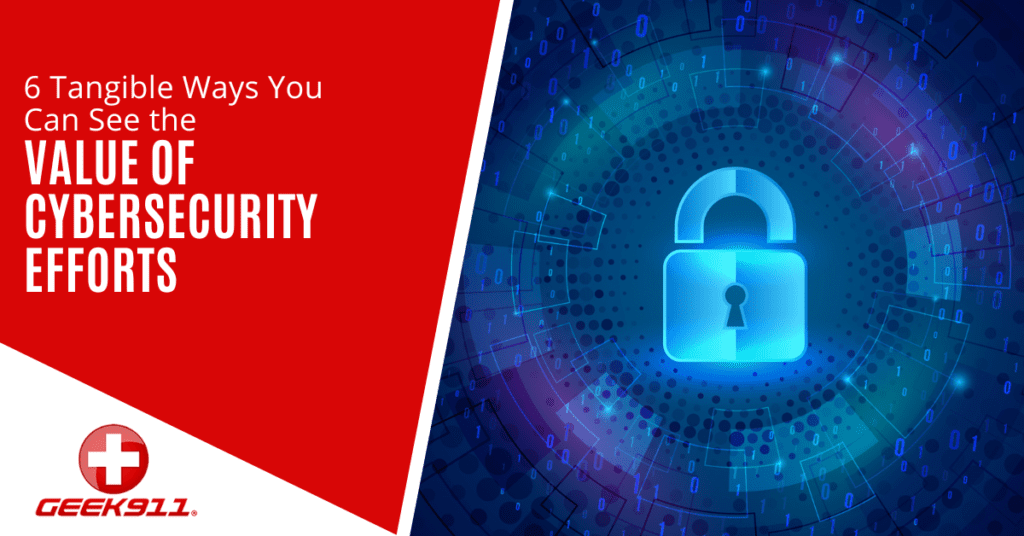6 Tangible Ways You Can See the Value of Cybersecurity Efforts

In an increasingly digital world, the importance of cybersecurity cannot be overstated. As individuals and organizations navigate the complex landscape of online threats, understanding the tangible benefits of cybersecurity efforts becomes paramount. In this article, we will explore concrete ways in which cybersecurity measures contribute to the overall well-being of individuals and businesses.
- Protecting Sensitive Data
One of the most immediate and tangible benefits of robust cybersecurity is the protection of sensitive data. In an era where personal and financial information is a prime target for cybercriminals, implementing cybersecurity measures becomes crucial. Encryption protocols, secure firewalls, and regular security audits are key safeguards in ensuring that sensitive data remains confidential and out of the hands of malicious actors.
- Preventing Financial Losses
Cybersecurity is a proactive investment that pays off by preventing potential financial losses. A breach in security can lead to significant financial repercussions, ranging from the cost of investigating and resolving the incident to potential legal consequences. By implementing effective cybersecurity measures, organizations can avoid these pitfalls, saving both money and reputation.
Financial Benefits of Cybersecurity Measures:
- Reduced Incident Response Costs: Rapid detection and mitigation of cyber threats can significantly reduce the costs associated with incident response.
- Lower Insurance Premiums: Insurance providers often offer lower premiums to organizations with robust cybersecurity measures in place, recognizing the reduced risk of cyber incidents.
- Maintaining Business Continuity
A cybersecurity breach can disrupt regular business operations, leading to downtime and loss of productivity. Ensuring business continuity is a tangible way in which cybersecurity efforts directly impact the bottom line. With secure backup systems, disaster recovery plans, and resilient cybersecurity infrastructure, organizations can minimize the impact of potential disruptions.
Ensuring Business Continuity Strategies:
- Regular Data Backups: Implementing automated, regular backups of critical data ensures that even in the event of a breach, data can be restored, minimizing downtime.
- Incident Response Planning: Developing and regularly testing incident response plans ensures a swift and effective response to any cybersecurity incident.
- Safeguarding Reputational Capital
In the digital age, reputation is a valuable asset. Cybersecurity plays a pivotal role in safeguarding an individual’s or organization’s reputation. A single data breach can erode trust and confidence among customers and partners. Proactive cybersecurity measures demonstrate a commitment to protecting stakeholders, preserving reputational capital.
Building and Maintaining Trust:
- Transparent Communication: In the event of a cybersecurity incident, transparent communication with stakeholders builds trust by demonstrating accountability and a commitment to resolving issues.
- Consistent Security Updates: Regularly updating security measures and informing stakeholders about these updates fosters a sense of security and trust.
- Meeting Regulatory Compliance
The regulatory landscape surrounding data protection is becoming increasingly stringent. Adhering to cybersecurity best practices is not just good business; it is often a legal requirement. Non-compliance can result in severe penalties and legal consequences. Meeting regulatory standards is a tangible demonstration of an organization’s commitment to ethical business practices.
Navigating Regulatory Challenges:
- Regular Audits and Assessments: Conducting regular cybersecurity audits ensures compliance with ever-evolving regulations and standards.
- Employee Training Programs: Educating employees about data protection regulations reduces the risk of unintentional compliance breaches.
- Enhancing Productivity and Efficiency
Cybersecurity measures, when integrated seamlessly into an organization’s operations, contribute to enhanced productivity and efficiency. A secure digital environment allows employees to focus on their tasks without the constant worry of potential cyber threats. This sense of security positively influences overall productivity.
Streamlining Operations with Cybersecurity:
- User-Friendly Security Solutions: Implementing user-friendly cybersecurity solutions ensures that security measures do not hinder workflow, promoting a smooth operational environment.
- Automated Security Protocols: Automation of routine security tasks reduces the burden on IT teams, allowing them to focus on more strategic initiatives.
Prioritizing Cybersecurity for a Secure Future
The tangible benefits of cybersecurity efforts extend far beyond the digital realm. From protecting sensitive data and preventing financial losses to maintaining business continuity and safeguarding reputational capital, cybersecurity is an integral component of modern life. By understanding and embracing these benefits, individuals and organizations can navigate the digital landscape with confidence, ensuring a secure and prosperous future.Contact us at GEEK911 to discuss how we can assist you in implementing robust cybersecurity measures tailored to your specific needs.
